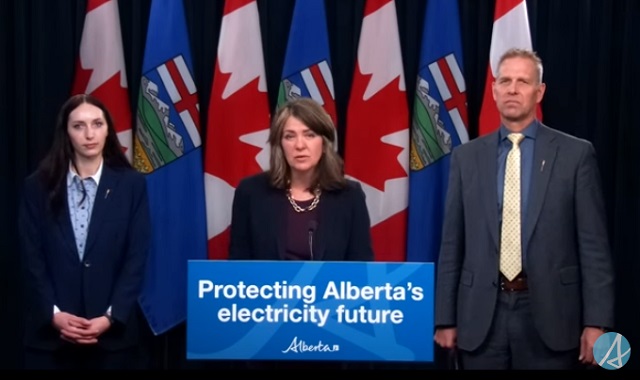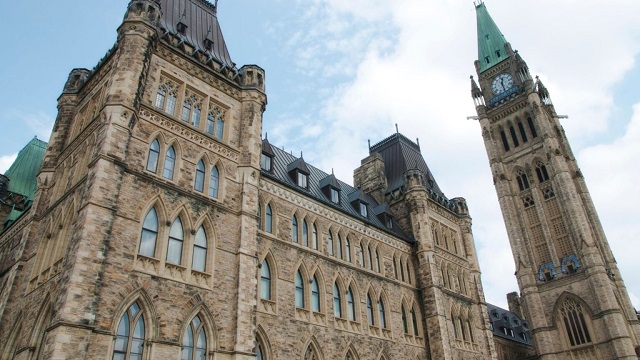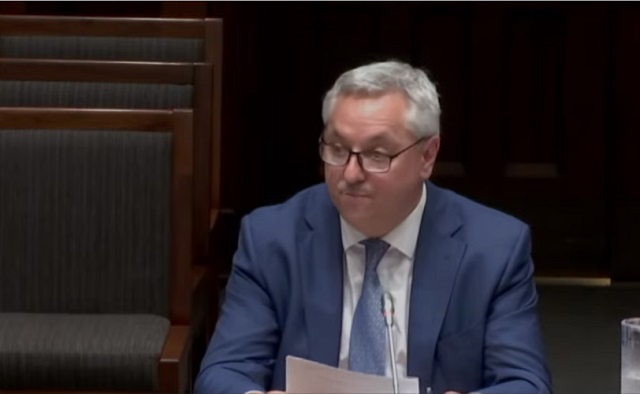Alberta
Join us as we welcome the Class of 2020

Join us as we welcome the Class of 2020.
We are excited to announce that tickets for the Alberta Sports Hall of Fame 2020 Induction Banquet are now on sale.
Come join us on Friday, May 29, 2020, at the Cambridge Red Deer Hotel and Conference Centre as we celebrate Alberta’s great athletes, sport builders, pioneers, and media personnel with hundreds of people from across the province, the west, and the country.
Cocktails will start at 5:00 p.m., with the dinner and program starting at 6:00 p.m.
Tickets are:
- $85 for Honoured Members;
- $125 for Guests of Honoured Members;
- $150 for General Admission; and,
- $1,200 for a Table of Eight
Tickets can be purchased by calling (403) 341-8614, by visiting https://www.albertasportshall.ca/2020-induction-banquet and filling out a registration form, or by visiting the event page on Eventbrite: https://www.eventbrite.ca/e/alberta-sports-hall-of-fame-induction-banquet-tickets-94867738961?aff=ebdssbeac.
The newest athletes joining the Hall of Fame are:
- Deidra Dionne (Athlete, Freestyle Skiing): Bronze medalist in women’s aerials at the 2002 Salt Lake City Winter Olympics.
- Chris Phillips (Athlete, Hockey): A stay-at-home defenceman and the longest-serving player in Ottawa Senators franchise history.
- Kelly Sutherland (Athlete, Chuckwagon Racing): Twelve-time Calgary Stampede Rangeland Derby Championships, and seven Calgary Stampede Aggregate titles.
- Michael Robertson (Athlete, Snowboardcross): Silver medalist at the 2010 Vancouver Winter Olympics.
This year’s builders include:
- Jan Ullmark (Builder, Figure Skating): Jan is an elite coach whose skills have made an indelible mark on the sport of figure skating in Canada.
- Terry Morris (Builder, Curling): Terry has been active in the promotion and development of the sport of curling in Alberta and across the nation for the better part of four decades.
- Ken Babey (Builder, Hockey): In his nearly three decades behind the bench of the Southern Alberta Institute of Technology (SAIT) Trojans men’s hockey team, Ken Babey guided the team to unparalleled success.
- Derek Douglas (Builder, Soccer): One of the first soccer referees from Alberta to attain the position of FIFA International Referee in 1986, Derek has also been instrumental in growing the game in Sherwood Park, Edmonton and throughout the province.
This year’s Alberta Sports Hall of Fame Award winners are:
- Nancy Southern & Ian Allison (Bell Memorial Award): As the team who pioneered equestrian sports broadcasting in Alberta, they are the first duo to be awarded the Bell Memorial Award.
- John Currie (Achievement Award): As president of the 1983 Western Canada Summer Games, John led the development and funding of the game’s flagship facility – the Repsol Sport Centre.
- Stan Wakelyn (Pioneer Award, Soccer): In 1922, Calgary Hillhurst FC won the Dominion of Canada Football Championship, with Stan, a centre forward, as team captain.
- Dennis Kadatz (Legacy Award): At 22, Dennis guided the Edmonton Huskies Junior Football Team to three consecutive Canadian Championships in 1962 and 1963. In 1964, Dennis became head coach of the University of Calgary’s fledgeling football program.
Read more here.
Deirdra Dionne one of 14 to be inducted to Alberta Sports Hall of Fame
Alberta
Alberta government should create flat 8% personal and business income tax rate in Alberta

From the Fraser Institute
By Tegan Hill
If the Smith government reversed the 2015 personal income tax rate increases and instituted a flat 8 per cent tax rate, it would help restore Alberta’s position as one of the lowest tax jurisdictions in North America
Over the past decade, Alberta has gone from one of the most competitive tax jurisdictions in North America to one of the least competitive. And while the Smith government has promised to create a new 8 per cent tax bracket on personal income below $60,000, it simply isn’t enough to restore Alberta’s tax competitiveness. Instead, the government should institute a flat 8 per cent personal and business income tax rate.
Back in 2014, Alberta had a single 10 per cent personal and business income tax rate. As a result, it had the lowest top combined (federal and provincial/state) personal income tax rate and business income tax rate in North America. This was a powerful advantage that made Alberta an attractive place to start a business, work and invest.
In 2015, however, the provincial NDP government replaced the single personal income tax rate of 10 percent with a five-bracket system including a top rate of 15 per cent, so today Alberta has the 10th-highest personal income tax rate in North America. The government also increased Alberta’s 10 per cent business income tax rate to 12 per cent (although in 2019 the Kenney government began reducing the rate to today’s 8 per cent).
If the Smith government reversed the 2015 personal income tax rate increases and instituted a flat 8 per cent tax rate, it would help restore Alberta’s position as one of the lowest tax jurisdictions in North America, all while saving Alberta taxpayers $1,573 (on average) annually.
And a truly integrated flat tax system would not only apply a uniform tax 8 per cent rate to all sources of income (including personal and business), it would eliminate tax credits, deductions and exemptions, which reduce the cost of investments in certain areas, increasing the relative cost of investment in others. As a result, resources may go to areas where they are not most productive, leading to a less efficient allocation of resources than if these tax incentives did not exist.
Put differently, tax incentives can artificially change the relative attractiveness of goods and services leading to sub-optimal allocation. A flat tax system would not only improve tax efficiency by reducing these tax-based economic distortions, it would also reduce administration costs (expenses incurred by governments due to tax collection and enforcement regulations) and compliance costs (expenses incurred by individuals and businesses to comply with tax regulations).
Finally, a flat tax system would also help avoid negative incentives that come with a progressive marginal tax system. Currently, Albertans are taxed at higher rates as their income increases, which can discourage additional work, savings and investment. A flat tax system would maintain “progressivity” as the proportion of taxes paid would still increase with income, but minimize the disincentive to work more and earn more (increasing savings and investment) because Albertans would face the same tax rate regardless of how their income increases. In sum, flat tax systems encourage stronger economic growth, higher tax revenues and a more robust economy.
To stimulate strong economic growth and leave more money in the pockets of Albertans, the Smith government should go beyond its current commitment to create a new tax bracket on income under $60,000 and institute a flat 8 per cent personal and business income tax rate.
Author:
Alberta
Province to stop municipalities overcharging on utility bills

Making utility bills more affordableAlberta’s government is taking action to protect Alberta’s ratepayers by introducing legislation to lower and stabilize local access fees. Affordability is a top priority for Alberta’s government, with the cost of utilities being a large focus. By introducing legislation to help reduce the cost of utility bills, the government is continuing to follow through on its commitment to make life more affordable for Albertans. This is in addition to the new short-term measures to prevent spikes in electricity prices and will help ensure long-term affordability for Albertans’ basic household expenses.
Local access fees are functioning as a regressive municipal tax that consumers pay on their utility bills. It is unacceptable for municipalities to be raking in hundreds of millions in surplus revenue off the backs of Alberta’s ratepayers and cause their utility bills to be unpredictable costs by tying their fees to a variable rate. Calgarians paid $240 in local access fees on average in 2023, compared to the $75 on average in Edmonton, thanks to Calgary’s formula relying on a variable rate. This led to $186 million more in fees being collected by the City of Calgary than expected.
To protect Alberta’s ratepayers, the Government of Alberta is introducing the Utilities Affordability Statutes Amendment Act, 2024. If passed, this legislation would promote long-term affordability and predictability for utility bills by prohibiting the use of variable rates when calculating municipalities’ local access fees. Variable rates are highly volatile, which results in wildly fluctuating electricity bills. When municipalities use this rate to calculate their local access fees, it results in higher bills for Albertans and less certainty in families’ budgets. These proposed changes would standardize how municipal fees are calculated across the province, and align with most municipalities’ current formulas.
If passed, the Utilities Affordability Statutes Amendment Act, 2024 would prevent municipalities from attempting to take advantage of Alberta’s ratepayers in the future. It would amend sections of the Electric Utilities Act and Gas Utilities Act to ensure that the Alberta Utilities Commission has stronger regulatory oversight on how these municipal fees are calculated and applied, ensuring Alberta ratepayer’s best interests are protected.
If passed, this legislation would also amend sections of the Alberta Utilities Commission Act, the Electric Utilities Act, Government Organizations Act and the Regulated Rate Option Stability Act to replace the terms “Regulated Rate Option”, “RRO”, and “Regulated Rate Provider” with “Rate of Last Resort” and “Rate of Last Resort Provider” as applicable. Quick facts
Related information |
-

 Frontier Centre for Public Policy2 days ago
Frontier Centre for Public Policy2 days agoThe tale of two teachers
-

 Business1 day ago
Business1 day agoMaxime Bernier warns Canadians of Trudeau’s plan to implement WEF global tax regime
-

 COVID-1920 hours ago
COVID-1920 hours agoWHO Official Admits the Truth About Passports
-

 International15 hours ago
International15 hours agoUN attacks stay-at-home motherhood as ‘gender inequality’
-

 Alberta15 hours ago
Alberta15 hours agoProvince to stop municipalities overcharging on utility bills
-

 Brownstone Institute2 days ago
Brownstone Institute2 days agoIs the Overton Window Real, Imagined, or Constructed?
-

 Freedom Convoy23 hours ago
Freedom Convoy23 hours agoOttawa spent “excessive” $2.2 million fighting Emergencies Act challenge
-

 Alberta1 day ago
Alberta1 day agoAlberta moves to protect Edmonton park from Trudeau government’s ‘diversity’ plan









